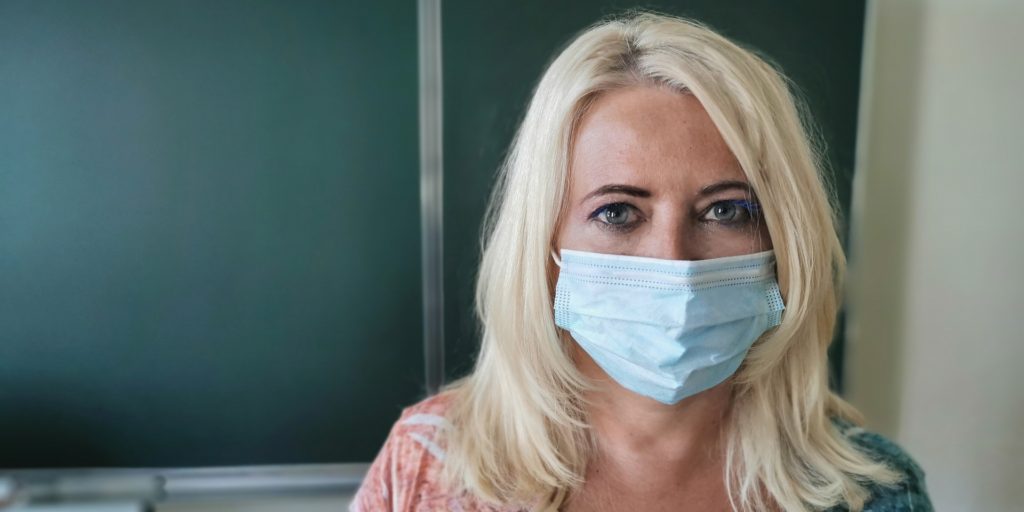- Higher speeds on Ontario highways may lead to more collisions - May 9, 2024
- Optional coverage is the wrong way to cut insurance rates - April 22, 2024
- A primer on successfully claiming LTD benefits in Ontario - March 18, 2024
By Paul Russell, LegalMatters Staff • A large number of professionals who have been on the frontlines of the coronavirus pandemic will be filing long-term disability (LTD) claims in years to come, says Toronto personal injury lawyer Joshua Goldberg.
“Teachers, police and retail workers in essential industries are burning out because of the stress brought on by COVID-19,” says Goldberg, principal of Joshua Goldberg Law.
“Many of them will be experiencing post-traumatic stress disorder when this finally ends,” he tells LegalMattersCanada.ca.
Goldberg is not alone in his prediction.
“Burnout is increasing among teachers in Canada,” according to an article in Canadian Occupational Safety.
People struggle to ‘remember what they love about their jobs’
“Many educators are exhausted and experiencing severe burnout. I think many people are struggling to remember what they love about their jobs,” a school counsellor says in the report.
“Teachers are definitely one of the hardest-hit professions,” says Goldberg. “It is very exhausting to teach lessons on Zoom instead of in person. There is something unsettling and exhausting about constantly being on a video call.”
The Toronto Star states the number of teachers in the Greater Toronto Area taking sick leave has nearly doubled compared to before the pandemic. Specifically, 519 full-time teachers at the Peel District School Board took a sick leave for three months or longer in the last school year, almost double the number of teachers who were on sick leave before the pandemic, according to the report.
In York Region, 711 teachers were off on sick leave in the 2020-21 school year, up from 372 from 2018-19. The same jump was seen across the Toronto District School Board, where 808 elementary school teachers took a sick leave for three months or longer in the last school year, up from 388 in 2019-2020, according to the Star article.
Health-care workers bearing an unfair burden
Hospital workers are also bearing the brunt of COVID, Goldberg says.
“The pandemic has been especially hard on those who have to deal with people dying on a daily basis,” he says. “Hospitals have been forced to stretch their resources. That means that some do not have access to as much care as they deserve.
“People who work in our hospitals are doing the best they can, but it’s upsetting to them that they can’t do more,” he adds.
A statement from the Ontario Medical Association (OMA) reinforces that. It notes that almost three-quarters (72.9 per cent) of physicians surveyed by the association said they experienced some level of burnout in 2021, up from 66 per cent the previous year.
- Advice on slip and falls, COVID, accidents, holiday parties and pets
- Common-sense steps can reduce your liability in winter injuries
- Advice on hosting a holiday party during a waning pandemic
It adds that just over one-third reported either persistent symptoms of burnout or feeling completely burned out in 2021, up from 29 per cent in 2020.
“Burnout and its symptoms have impacted so many physicians, which unfortunately has been exacerbated by COVID-19,” said an OMA executive member. “Tackling this epidemic is one of the most urgent needs facing the profession.”
Police officers reporting high levels of stress
The law enforcement community is also paying the price.
According to a report, “76 per cent of RCMP members who responded to the survey reported high levels of job stress. These levels of stress are higher than in most other participant groups – including other first responder workers. This is due to their already stressful occupation and work experiences, the increased and new pressures of COVID-19.”
The report adds that this stress is not only leading to absenteeism in the current ranks but to staff shortages down the road.
“A third of constables in the sample stated that they have decided not to seek promotion or transfer during the pandemic, which makes proper succession planning a challenge,” the report states. “A quarter of them stated that they had experienced reductions in their work productivity and an increase in absenteeism because of the pandemic due to illness, quarantine, family needs and related stress.”
Students will be adversely affected by ongoing lockdowns, Goldberg says.
Students ‘need to see each other and socialize’
“The pandemic has been especially hard on people who are maturing,” he says. “They are in a key moment of their growth and development, and they need to see each other and socialize. They benefit from that interaction.”
As an example, he says a friend’s kindergarten-age child spent the last year receiving virtual lessons online. The family is not happy with that situation.
“Normally, children that age enjoy being with their peers as they learn. But when they are forced to do classes online, they are isolated. Instead of singing songs together, each kid is singing with the camera muted. They are literally singing to themselves. Who knows how much personal development they are missing.”
A rise in LTD claims will come from people not in frontline industries as they grapple with the effects of being isolated in their homes, Goldberg says.
“Many of us have not had a normal level of social interaction for years,” he says. “We are stuck at home, working remotely day after day, without any real interactions with others.”
According to information from the Ontario government, “the COVID-19 pandemic initiated the largest shift to remote work in history with 32 per cent of Canadians aged 15 to 69 working from home in January 2021, compared to just 4 per cent in 2016.”
“We can expect more LTD cases down the road due to this pandemic,” says Goldberg. “Many will be based on mental health concerns caused by the lockdown.”

